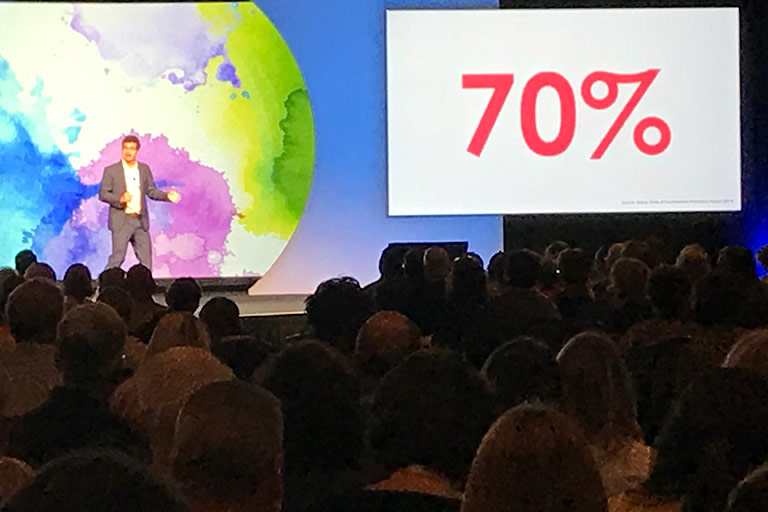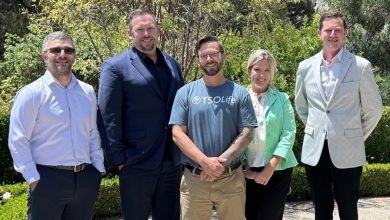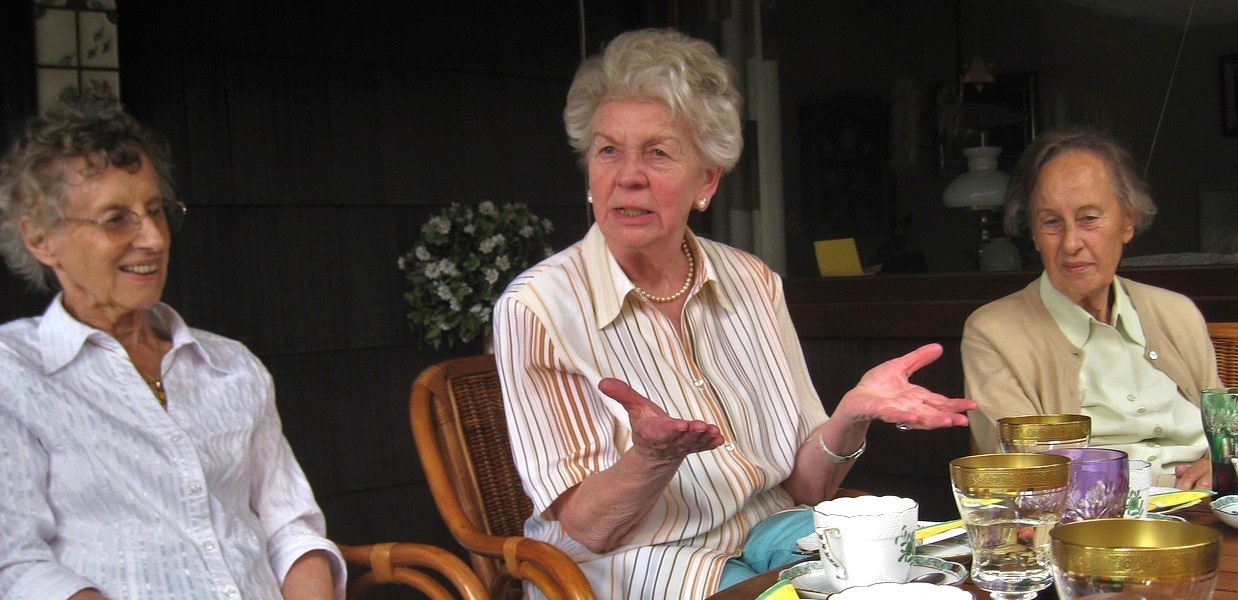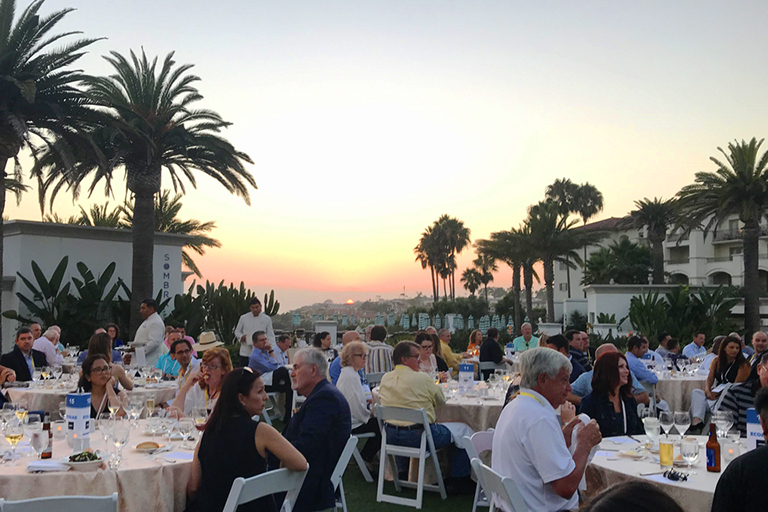
Getting Engaged
By joe | July 10, 2018
While compensation will always be considered a key factor in attracting and retaining employees, research shows the main reason people leave a job is to go to a firm with a better culture.
“For all the technological advances we have, one of the biggest things is value. It couldn’t be more old-school,” said Millennial Workplace Expert Adam Smiley Poswolsky—speaking on “Creating a Purpose-Driven Workplace: How to Attract, Retain and Engage the Next Generation” at a recent conference.
He added, “Showing up in the morning and feeling like the people that manage you and the people around you care that you’re there. They know who you are. Believe in your dreams. Want you to succeed. Know what’s going on in your life outside of what you’re working on that day.”

The average millennial now stays in a job two to three years. Across generations, length of stay is about five years, not much longer. Millennial turnover costs U.S. companies $30 billion a year, and the cost of losing and replacing an employee can range from tens of thousands of dollars to 1.5 to 2 times the employee’s annual salary.
Gallup research shows that 70% of employees consider themselves to be disengaged at work. “One-fifth are so disengaged, they’re actively undermining their co-workers’ work. So they’re literally getting paid by that company to mess things up,” Poswolsky said.
What does that mean for the senior living industry that needs to attract 1.2 million new employees by 2020, with some reports and labor statistics projecting new senior living staffing needs as high as 1.5 million by 2025?
Poswolsky, author of “The Quarter Life Breakthrough—Invent Your Own Path, Find Meaningful Work, and Build a Life That Matters,” believes our industry may be in one of the best positions to meet the needs of this next generation. And much of what millennials want isn’t all that different from other generations. Millennials are just better at telling you. They want purpose, to matter, to make a difference, to have meaningful work.
He shared his mother’s thoughts as a nurse now working a “retirement” job in hospice at a VA hospital: “You get more than you give when you’re working in service. It’s not just about the numbers, checklists, job descriptions. It’s about caring for people at the most vulnerable time in their lives. And that’s meaning. That’s purpose.”
There’s a complete disconnect between what employees say is the most important thing in their job and what business leaders and people running organizations say is most important to them—which is their reputation for growth and innovation.
“When you interview people from the top on down, it’s personal meaning in their everyday work,” Poswolsky said. “We can say purpose all we want, but are we actually providing it? Are we seeing it through on an everyday basis? Are we creating opportunities for growth?”
Research indicates that some sixty-five percent of today’s kids will end up in jobs that haven’t been invented yet. Think about all the data and analytics and social media jobs that weren’t around 10 years ago. What will jobs in the next 10 years look like? How do we prepare for jobs we don’t know will exist?
He suggests we all start thinking about careers and career development differently. We have to constantly grow, adapt, be flexible, try new things, value employees through coaching and mentoring, encourage them to grow within our organizations, truly provide opportunities for learning, growth and trying new things every day. If the job remains the same day after day, if they’re not growing, millennials are going to be out the door.
The workplace is the new grad school, and HR is the new life coach. If you can create opportunities for learning and growth—for skill building within the workplace, organization, community—you’ve just given someone an incentive to stay. If you’ve given someone who’s been in the field 10, 15, 20 years an opportunity to teach, mentor—which also provides meaning and value—you create that kind of learning ecosystem. Workers with more experience can reinvent their career. That’s a graduate school within your organization, a win-win, says Poswolsky.
How do we harness the wisdom of baby boomers while also giving early talent a platform, a voice? Forget the stereotypes. Most people want to show up every day and work together.
Create co-leadership opportunities, pairing someone experienced with someone who’s early in their career but sharp, eager to learn. Let them co-lead a project, something that matters. The young person brings fresh ideas, maybe social media, or may bring along their community. Do lunch and learns, encourage walk and talks where an experienced worker talks about their major career milestones—not their resume—but what they struggled with, wish they had known.
“Merge those two ways of thinking together, and magic happens,” said Poswolsky.
“Millennials lack patience,” he said, including himself. “They’re hungry. They want to do a lot but don’t know a lot yet. Meaning, purpose, growth, innovation, success—this doesn’t happen overnight. It takes years, sometimes decades. We need to teach young people that, but we can’t do that if we just push them aside. We have to bring them in and care for them. Teach them workplace etiquette; establish clear workplace expectations, what we care about.

“Treat culture like a product. Missions, values need to be living, breathing. Change the organizational culture. Change the way we’re doing things. Constantly growing, building,” he said, comparing it to someone building an app and continuing to tweak it.
“Be a brand with a mission. Design culture that is more than just culture. Give millennials an opportunity to make a social impact—so their work matters beyond their pay grade, their salary line, the name of the company they work for—their work is making the world a better place. Provide learning, development, design work for the talent’s future, not for the company’s future. Performance management is about your people, not just key performance indicators, not just about hitting key targets. It’s about people, growing their genius every day,” he concluded.




